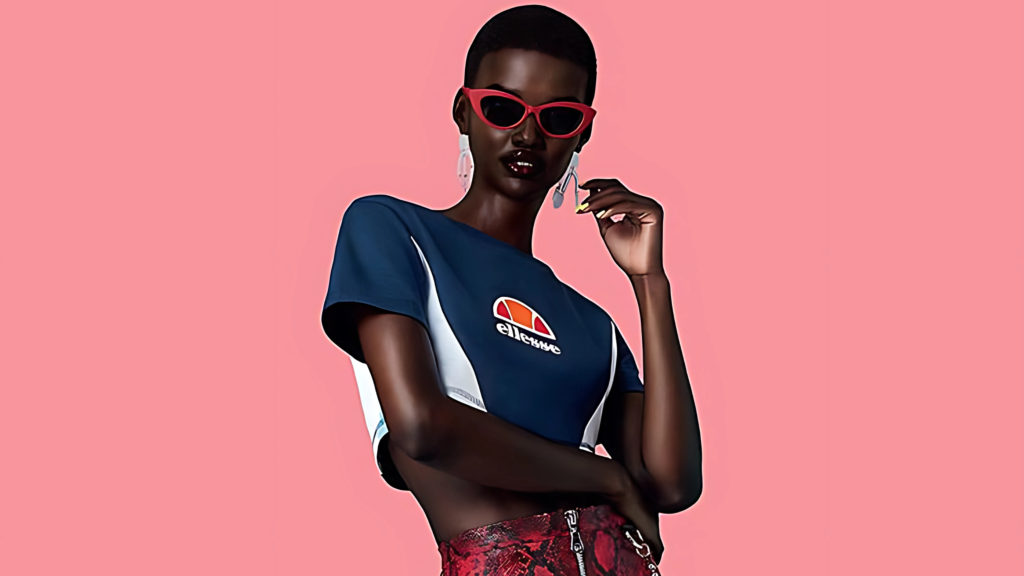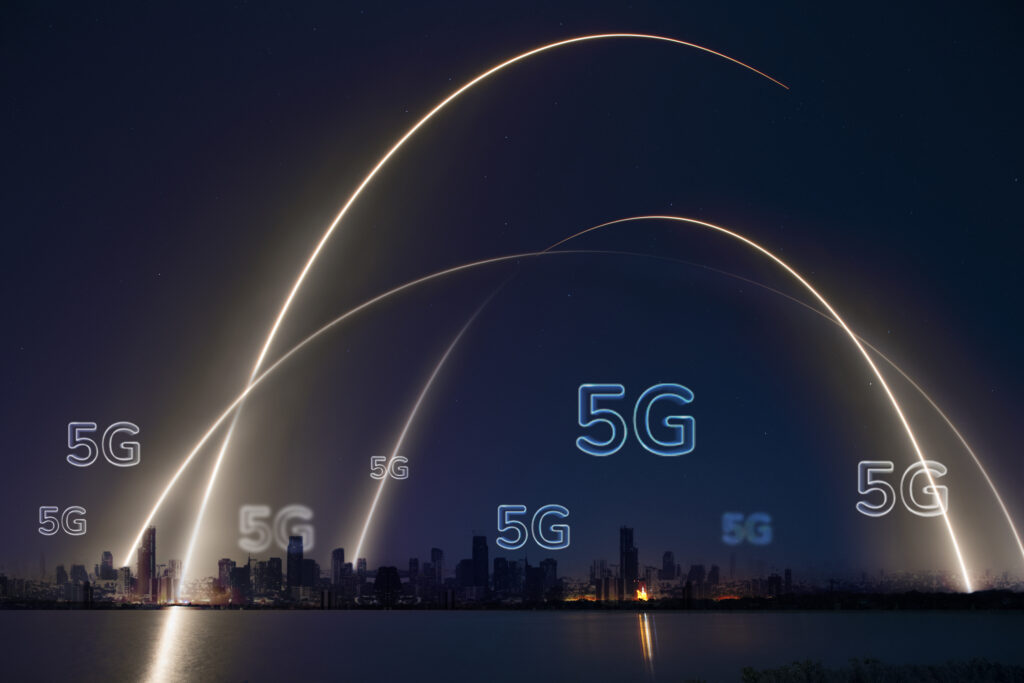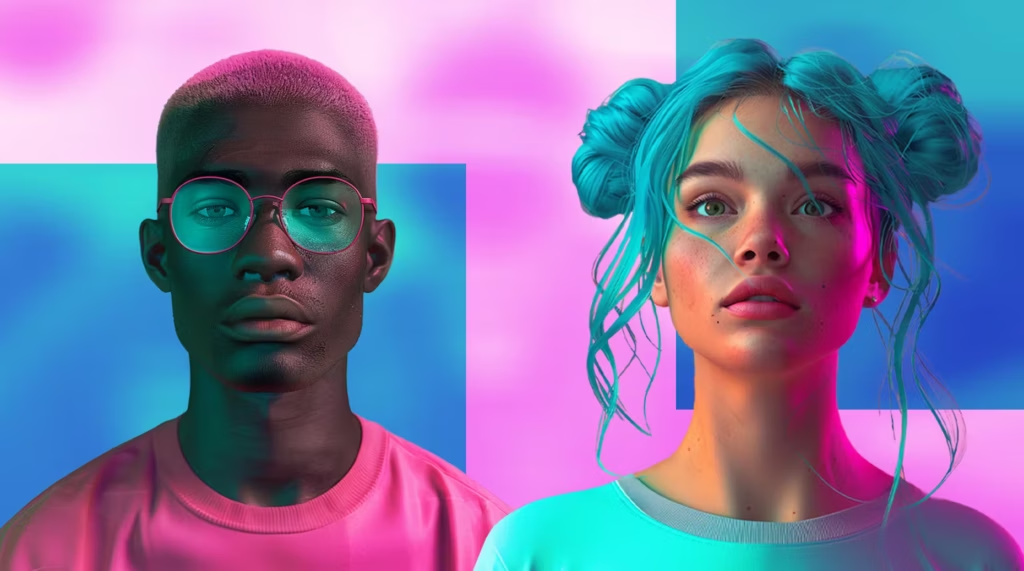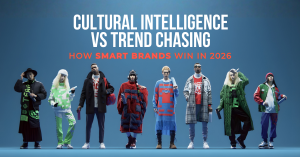The digital marketing landscape is evolving at an unprecedented pace, with cutting-edge technologies reshaping how brands and influencers collaborate. In South Africa, where influencer marketing has seen exponential growth, advancements in Artificial Intelligence (AI), Blockchain, 5G, and Augmented Reality/Virtual Reality (AR/VR) are revolutionizing the industry.
These innovations are not only enhancing engagement and efficiency but also fostering transparency and authenticity in brand-influencer partnerships.
AI-Powered Influencer Marketing: Smarter Campaigns and Deeper Insights

Why is AI important in 2025:
AI is transforming influencer marketing by providing data-driven insights, automating processes, and improving personalisation. Machine learning algorithms analyze vast amounts of data to help brands identify the most suitable influencers based on audience demographics, engagement rates, and content relevance. AI-powered sentiment analysis also enables brands to gauge audience reactions in real time, ensuring that influencer campaigns align with brand values and audience expectations.
Moreover, AI-driven chatbots and virtual influencers are emerging as powerful marketing tools. Brands in South Africa are beginning to experiment with AI-generated tools such as Fenty Beauty’s AI shade finder or virtual try-on and Woolworths’ chatbot-driven customer engagement system. These tools allow brands to interact with followers 24/7, providing consistency and scalability that human influencers may struggle to match.
The Rise of Virtual Influencers in South Africa

Virtual influencers—AI-generated personalities that exist solely in the digital space—are poised to make a significant impact on the South African market. These digital personas offer brands a cost-effective, controlled, and scalable alternative to human influencers. With a growing interest in tech-driven marketing, South African brands can leverage virtual influencers to deliver highly curated and engaging content while maintaining consistency in brand messaging. From fashion and beauty to tech and entertainment, virtual influencers can enhance audience interaction, providing brands with a fresh and futuristic approach to influencer marketing.
Case Study – Shudu “AI Influencer and Model”
Shudu Gram, created by British fashion photographer Cameron-James Wilson is the world’s first digital supermodel. Designed using 3D modeling software, Shudu represents a hyper-realistic virtual model with deep brown skin, high cheekbones, and striking features inspired by African beauty. Her popularity soared when Fenty Beauty (Rihanna’s cosmetics brand) reposted an image of her wearing their lipstick, sparking widespread conversation about digital modeling and representation.
Key Achievements
- Featured in campaigns for Balmain, Ellesse, and Samsung Worked with The Digitals, a virtual modeling agency founded by Wilson
- Gained over 200K Instagram followers, solidifying her status as an influencer
- Led to discussions about the future of AI-generated influencers in fashion
Blockchain: Ensuring Transparency and Fair Compensation

South Africa has seen a growing adoption of blockchain technologies across various industries, including influencer marketing. Companies like Sun Exchange utilize blockchain for transparent, decentralized transactions, while Custos Media Technologies employs blockchain to prevent digital piracy. In the influencer marketing space, platforms such as Web-based endorsement tracking solutions and NFT-powered brand collaborations are emerging, ensuring fair compensation and verifiable engagement metrics
One of the biggest challenges in influencer marketing has been transparency—fake followers, inflated engagement metrics, and payment disputes have plagued the industry. Blockchain technology is poised to solve these issues by offering a decentralized and tamper-proof system for verifying authenticity.
Smart contracts on blockchain networks ensure that influencers receive fair compensation based on predefined metrics, eliminating disputes and delays. Additionally, brands can track campaign performance with immutable data, fostering trust and accountability between all parties involved. As South Africa’s digital economy matures, blockchain adoption in influencer marketing could redefine how brand collaborations are managed.
Forms of Blockchain in Influencer Marketing
- Smart Contracts for Transparent Payments
- Automates contracts between brands and influencers, ensuring secure and instant payments.
- Eliminates intermediaries, reducing delays and disputes.
- Tokenized Rewards & Cryptocurrency Payments
- Brands can pay influencers using cryptocurrencies or issue brand tokens as incentives.
- Influencers can exchange or redeem tokens for cash or exclusive brand perks.
- Decentralized Influencer Platforms
- Platforms like HYPR, Indahash, and SocialChains use blockchain to connect brands with influencers without middlemen.
- Provides real-time engagement tracking and fair compensation models.
- NFT-Based Brand Collaborations
- Influencers can create and sell branded NFTs (e.g., digital collectibles, limited-edition content).
- Fans gain exclusive access to content, events, or merchandise through NFTs.
- Fraud Prevention & Authenticity Verification
- Blockchain helps verify real engagement vs. fake followers using immutable data.
- Ensures genuine influence metrics, reducing fraudulent activities.
5G: Unlocking Real-Time, High-Quality Content

The rollout of 5G in South Africa is set to revolutionize content creation and consumption. With faster internet speeds and lower latency, influencers can produce and share high-quality, real-time content without buffering issues. This is particularly beneficial for live streaming, a key trend in influencer marketing that allows for immediate audience engagement.
Furthermore, 5G enables brands and influencers to create immersive experiences, such as interactive live shopping and virtual product launches. This increased connectivity will bridge the gap between digital and physical experiences, providing brands with new opportunities to engage their audiences in real-time.
AR/VR: Enhancing Engagement Through Immersive Experiences

Augmented Reality and Virtual Reality are taking influencer marketing beyond traditional content formats, offering interactive and immersive experiences. AR filters and virtual try-on features are already popular among South African influencers, allowing audiences to engage with products in a more interactive way before making a purchase decision.
For example, beauty brands like L’Oréal and Sephora have leveraged AR to let customers try different makeup looks through Instagram or Snapchat filters, while fashion brands such as Nike and Gucci have explored virtual fitting rooms. VR, on the other hand, can create entirely immersive brand experiences, from virtual store tours to influencer-hosted digital events, as seen with initiatives by IKEA and Balenciaga.
Case Study
Woolworths, one of South Africa’s leading retail brands, integrated Augmented Reality (AR) technology to enhance its customer shopping experience, particularly in the beauty and fashion sectors.
Implementation
- Woolworths introduced an AR-powered virtual try-on feature for beauty products.
- Customers could use their smartphone cameras to see how different makeup shades (lipsticks, eyeshadows, foundations, etc.) would look on them in real-time.
- The AR tool was accessible via the Woolworths mobile app and online store, reducing the need for physical testers.
Impact & Benefits
- Enhanced Customer Experience – Allowed shoppers to make confident purchase decisions without physically testing products.
- Increased Online Sales – Boosted Woolworths’ e-commerce engagement as customers felt more secure buying makeup online.
- Hygienic & Convenient – Reduced the need for in-store testers, making shopping safer, especially post-pandemic.
- Brand Differentiation – Positioned Woolworths as an innovative leader in South African retail.
The Future of Influencer Marketing in South Africa

As technology continues to advance, the future of influencer marketing in South Africa is poised to become more data-driven, transparent, and immersive.
Brands that strategically integrate AI, Blockchain, 5G, and AR/VR into their marketing efforts don’t just advertise, they create high-impact experiences that resonate with modern consumers.
The question is no longer if these advancements will redefine influencer marketing, but how quickly brands and creators will adapt. The digital revolution is unfolding now—will you be ahead of the curve or struggling to catch up?




